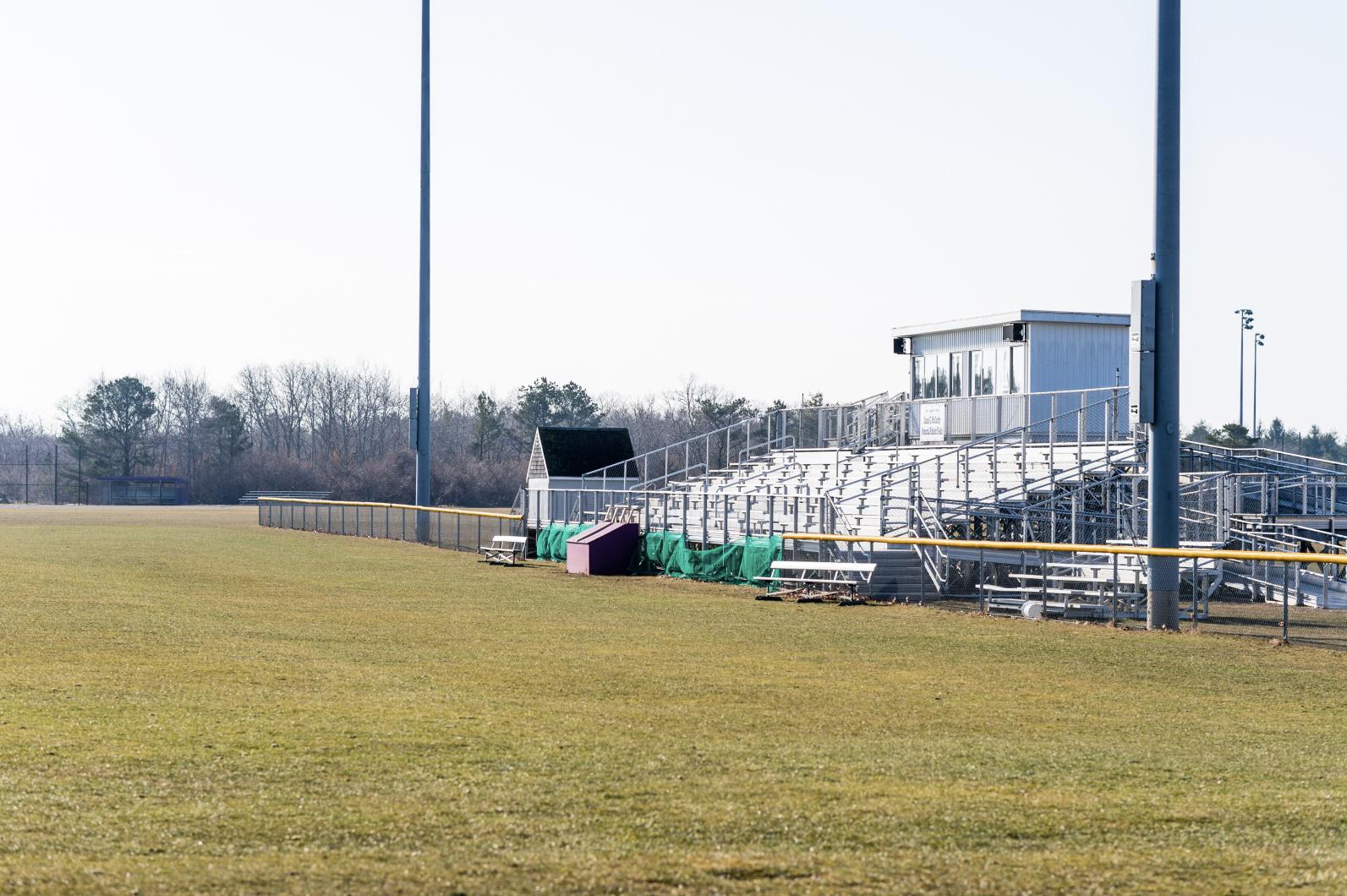In a meeting marked by arguments, finger-pointing and recriminations, the Martha’s Vineyard Regional High School committee voted 7-2 Thursday to make no changes to the operating budget for the coming fiscal year, saying the committee has addressed the fiscal concerns of the up-Island towns that rejected it.
Voting in the majority were chair Robert Lionette of Chilmark, Kimberly Kirk and Louis Paciello of Edgartown, Kris O'Brien and Kathryn Shertzer of Oak Bluffs and Jen Cutrer and Michael Watts of Tisbury. Skipper Manter of West Tisbury and Roxanne Ackerman of Aquinnah voted no.
The vote sends an untouched $25 million budget back to Aquinnah, Chilmark and West Tisbury for approval at special town meetings later this year.
At their annual town meetings this spring, the three communities voted down their shares of the operating budget – not because of what the spending plans contained, but because of voters’ opposition to the district’s legal appeal against the Oak Bluffs planning board.
The school committee filed a lawsuit against the planning board after the board denied the district’s application for an artificial turf playing field at the high school.
“The budget is not the issue,” said Mr. Manter, who led the resistance with a motion to reject the budget in West Tisbury last month, at Thursday's committee meeting.
“The budget itself is solid,” Mr. Manter added.
Voters at last month’s town meetings in Chilmark and West Tisbury said they wanted the school district to stop funding the appeal from the operating budget.
In the event that a regional school budget fails, the school committee has 30 days to "reconsider, amend and resubmit a budget on the basis of the issues raised," according to state law.
The school committee agreed at its May 5 meeting to not tap any of its 2024 legal budget for the case, while seeking a legal settlement with Oak Bluffs.
To members of the committee, this addressed the community concerns, meaning the budget can go back to town meetings.
In Aquinnah this week, town meeting voters echoed the other communities’ concerns and also expressed opposition to artificial turf for health and environmental reasons.
“Those were the two issues, switch the surface and stop [suing],” said Sam Hart, project coordinator for the high school’s planned rebuilding project, who attended the Aquinnah meeting Tuesday.
Ms. Ackerman voted no on Thursday’s decision to recertify the previously voted-down budget and send it back to the towns, saying it doesn’t respond to her community’s concerns about the field.
But Ms. O’Brien, who has taken the lead in the committee’s appeal against her town, said the turf field isn’t part of the budget in the first place, because it will be privately funded, and thus had no role to play in the recertification.
“It is not an F.Y. [fiscal year] ’24 budget issue, with all due respect to the voters in Aquinnah,” said Ms. O’Brien, who also accused Mr. Manter and Mr. Lionette of misrepresenting facts about the case when they spoke at their town meetings.
Committee member Kimberly Kirk of Edgartown had harsher words for the up-Island committee members.
“I think we’re setting a very dangerous precedent here, that anyone would use a school budget supporting kids’ education as leverage to get what they want when they’re not getting what they want by [committee] votes,” said Ms. Kirk.
After listening to the committee’s grievances, Island schools superintendent Richie Smith stepped in with some strong remarks of his own.
“It is an untenable situation for school administration to operate with this kind of banter that goes back and forth,” he said. “We need better from you guys. Period. We need better.”
High school principal Sara Dingledy also pleaded for more harmony among committee members.
“Just work together,” she said. “Just stop fighting.”
If even one of the three up-Island towns reverses its vote on the budget, Ms. Dingledy will be able to go ahead with hiring and other plans for the fiscal year that starts July 1.
But with the outcome uncertain, she and Mr. Smith will meanwhile be working with district finance director Mark Friedman to develop a spending plan that stays within the current budget, which is more than $500,000 lower.
State law provides a monthly amount, equal to 1/12 of the previous year’s budget, to school districts where budgets have not been approved by the start of the fiscal year.
“I think the responsible way to plan here is to look at the worst-case scenario … because those are the conditions our administration has to work under to support our kids,” Mr. Smith said.
The 1/12 monthly payments — which the state will claw back from its aid to individual towns — have an expiration date, Mr. Friedman cautioned the committee.
If a spending plan is still unapproved after six months, the state department of education will take fiscal control of the district, Mr. Friedman said.
While the budget and turf debate rolls on, the school is also weeks away from undertaking a feasibility study to look at the potential of renovating or rebuilding the high school. The study is the final hurdle for admission to the Massachusetts School Building Authority’s (MSBA’s) competitive construction program, which reimburses up to 38 per cent of many costs.
Mr. Hart, the school’s liaison with the MSBA, said Thursday that the budget conflict has not harmed the project’s chances.
“They’re treating it as two different issues,” he said.
“They want us to keep them informed but …we’re doing fine with the MSBA program,” Mr. Hart said.
The high school committee meets next on May 18 at 6 p.m. in the school library.







Comments (18)
Comments
Comment policy »